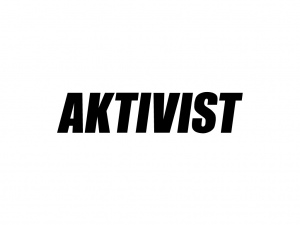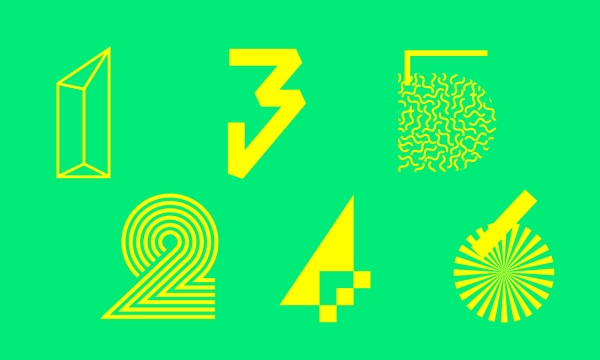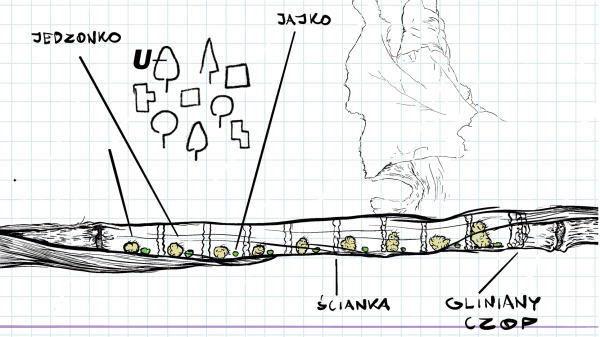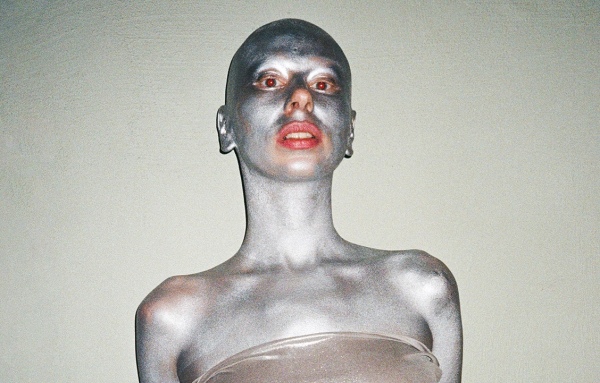Przemek Matecki
Oil sketches / Stalker
The exhibition by Przemek Matecki has two titles. The painter named it “Oil sketches”, while the other title, i.e. “Stalker”, was given to it by the exhibition curator. Stalker is a harasser driven by their passion for the inaccessible object of their desire. Admiration and aggression blend in the stalker’s passion into one common desire which eventually turns into an obsession.
Matecki is a painter capable of rapid gestures. One of the faces of his art is dirty, post-punk and vulgar; this is the creation that strives for chaos, formlessness, painting of (degraded) matter stemming (often literally) from rubbish. It is however not its only face. Pursuing Matecki’s works, critics found traces of expressionism and action painting in them, as well as of surrealism and pop. In comments about the painter his countercultural roots have been pointed out, which give rise to his tendency for iconoclasm and anti-aesthetics. On the other hand Matecki is engaged in a constant dialogue with history of art. He studies modernist visual codes and challenges himself to the legacy of romanticism. He quotes and interprets great artists of the past. In his art brutality coexists with sophistication and tenderness for the image. His practice is not characterised by any painting routine, his art does not crystallise into a “style” and it escapes unequivocal categorisations. The binder for this multithreaded oeuvre is the artist’s anti-academic attitude, his fascination with the matter of painting and ways in which images come to life and become transformed.
The relation between the photo and painting, as well as between the image found and picture created by the artist constitutes one of the major subjects of Matecki’s art. “Oil sketches” also follow this theme. This cycle of works has been created for years, turning into a potentially never-ending painting project. The starting point of all the “Oil sketches” is a photography; full-page advertisement photos generally presenting beautiful women or exceptionally – equally beautiful men. Matecki finds these photos in fashion and life style magazines Even the magazines he uses are also found objects themselves. In the postmodernist world pictures are literally available everywhere; old issues of magazines full of photo images which land in rubbish bins, staircases and waste paper collection points where they wait only to be ground or found by somebody like Matecki, who will re-introduce them into the visual circulation.
Pages cut out of the magazines become the material of the “Oil sketches”. However, rather than paint his paintings on them, the artist transforms the already existing images. He places the subsequent layers of oil paints over the newspaper photos. Thus, he covers the models’ faces, hides the images of beautiful women under the masks of paint. He haunts advertising representations, “painting in” apparitions, shapeless creatures and ghosts into their space. He stresses certain details while eliminating others, he changes the composition, infects the hyper-realistic world of marketing pictures with viruses of abstraction. Some of Matecki’s interventions resemble an assault on a photography which eventually is almost completely painted over. On other occasions the painter follows the original image, mocking it or extracting its hidden potential – as if the picture carried in itself a number of other, secret images, the existence of which must only be disclosed.
“Oil sketches” provide for a collision of two visual matters. Photos belong to an ideal order; they represent perfectly beautiful women shot in a perfect way – this is an intensified reality, exacerbated to the level at which the picture becomes completely unreal and bodiless. It is a paradox that these perfect images are at the same time unnecessary, devalued, caught by the artist out of the stream of used pictures flowing into the sewer of iconosphere. Matecki re-establishes their meaning and significance anew; he applies a dense and tangible painting matter over the frail paper bodies of the newspaper photos. Transparency of the photos is contrasted with opaqueness of the paints, mechanical character – with a hand gesture, perfection of the advertising image with primitivism of painted motives. “Oil sketches” can be associated with a modernist collage, not only because they are based on a similar dialectics of pictures strange to each other and yet put together. The sophisticated primitivism of Matecki’s painting gestures is also modernist in itself, as it reminds of close relations between the modern and the primitive – ritual mask, totem, cave paintings made by the artist driven by an unstoppable desire for painting.
In “Roadside Picnic”, a short science fiction novel by Arkady and Boris Strugatsky, as well as in the film by Andrei Tarkovsky based on their book, stalkers are smugglers who explore the forbidden Zone and retrieve from it incredible artefacts which in result of an extraterrestrial event now possess inexplicable, seemingly supernatural properties. As a collector of pictures found and retrieved, Matecki also resembles a smuggler who plunders various iconosphere zones for different objects with special properties, “soaking them through” into his paintings. The stalker metaphor has also another meaning which addresses the erotic dimension of Matecki’s artistic output. “Oil sketches” are par excellence erotic works. The act of their creation is an act of touching, desecrating and possessing the bodiless beauty of images. The contemporary desire is lost in the labyrinth of representations. The post-modern reality generally turns into genuine pornography, and the artist himself becomes a stalker who harasses images.
Stalkers are uninvited guests in their victims’ life; they follow them, adore and hate them at the same time, but first of all they look at them – as it is not the person that is the actual object of their desire, but that person’s image carefully cherished in the stalker’s mind. Stalkers are both assailants and objects of the assault; they haunt another person and are haunted themselves by their own vision of their victim. Similarly, there is something obsessive about the systematic character of Matecki’s work on “Oil sketches”. The painter keeps coming back to the cycle, looks through colourful magazines, finds new photos, is seduced by them and at the same time possesses them.
- Curated by
- Stach Szabłowski








